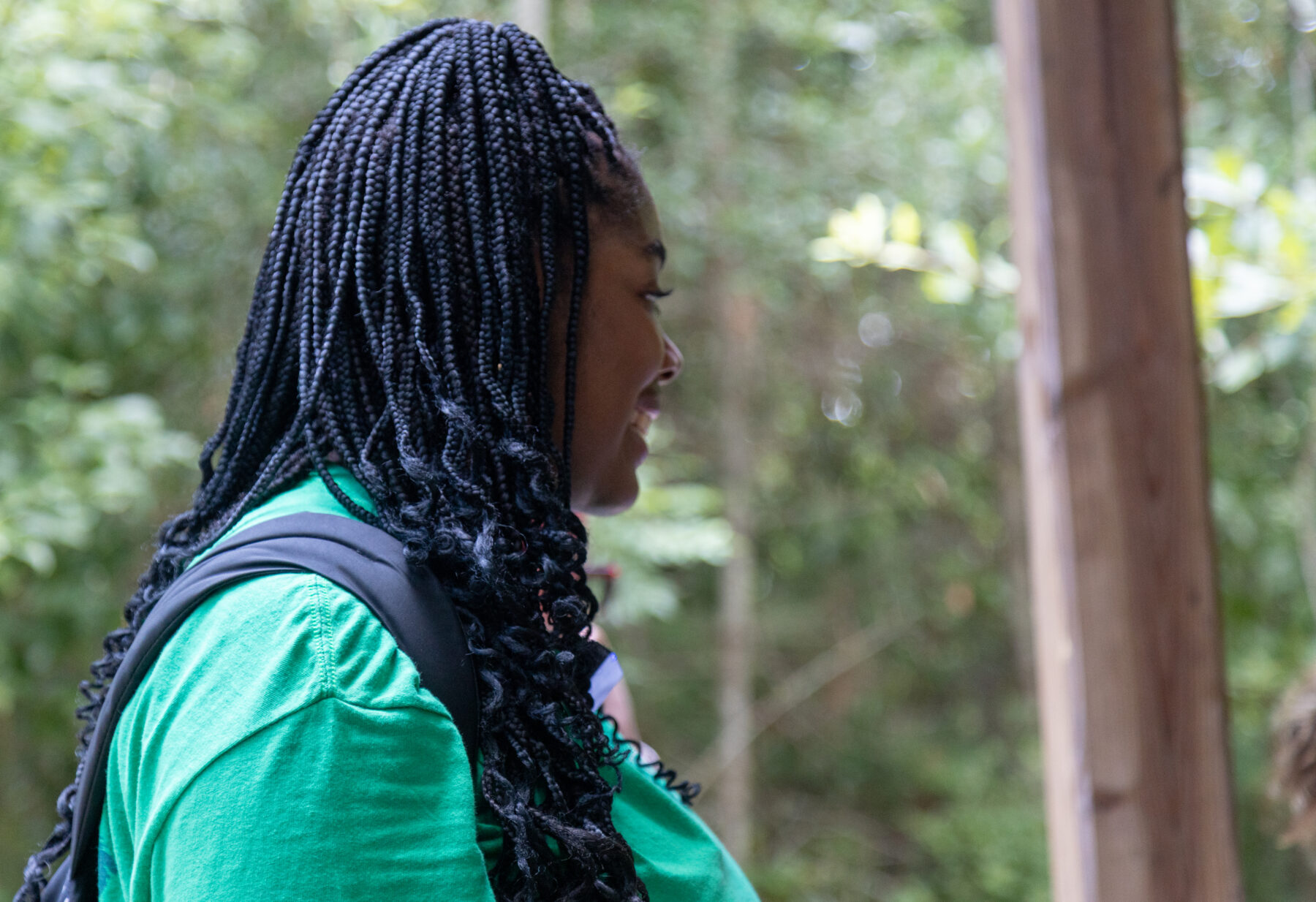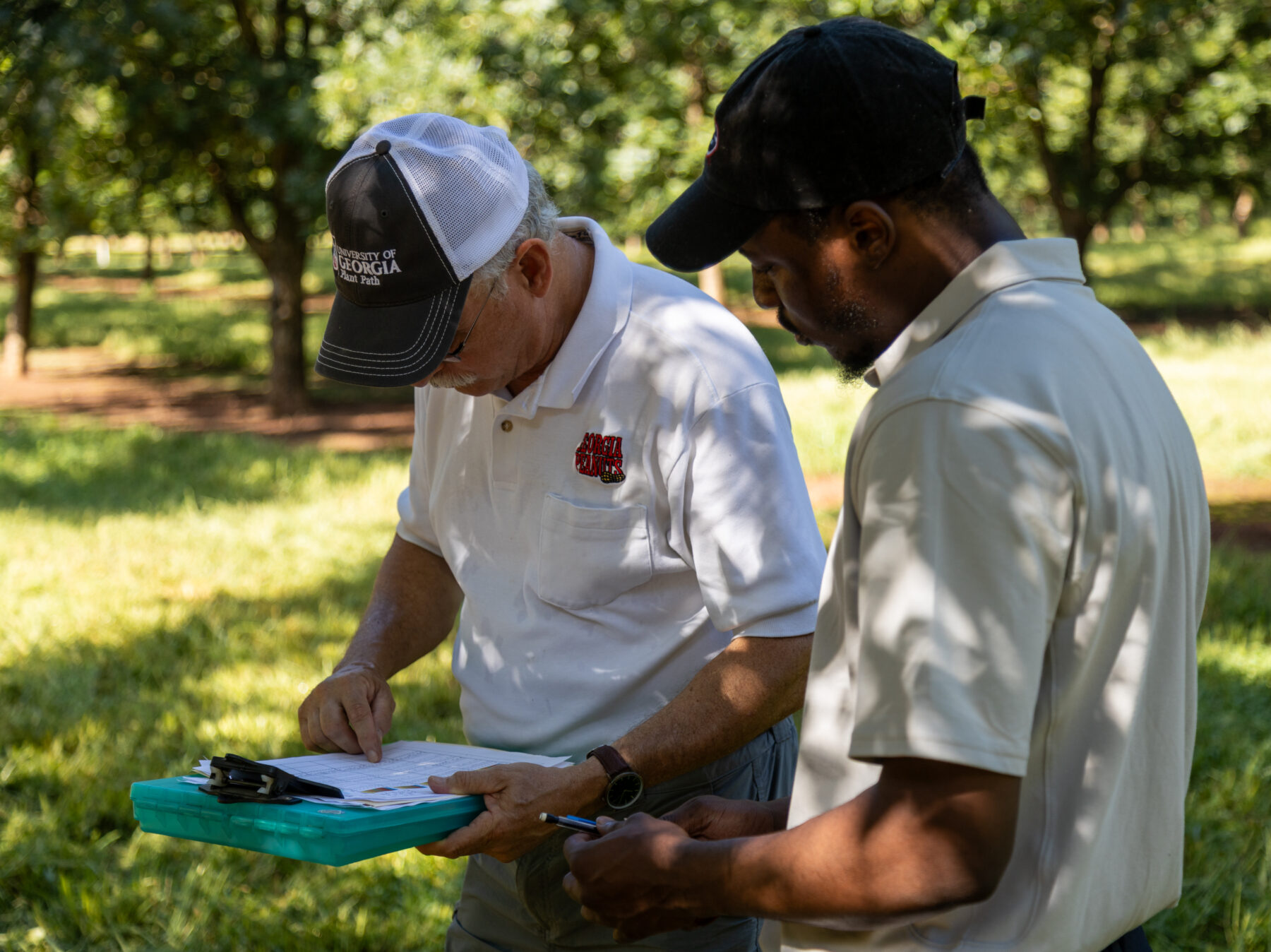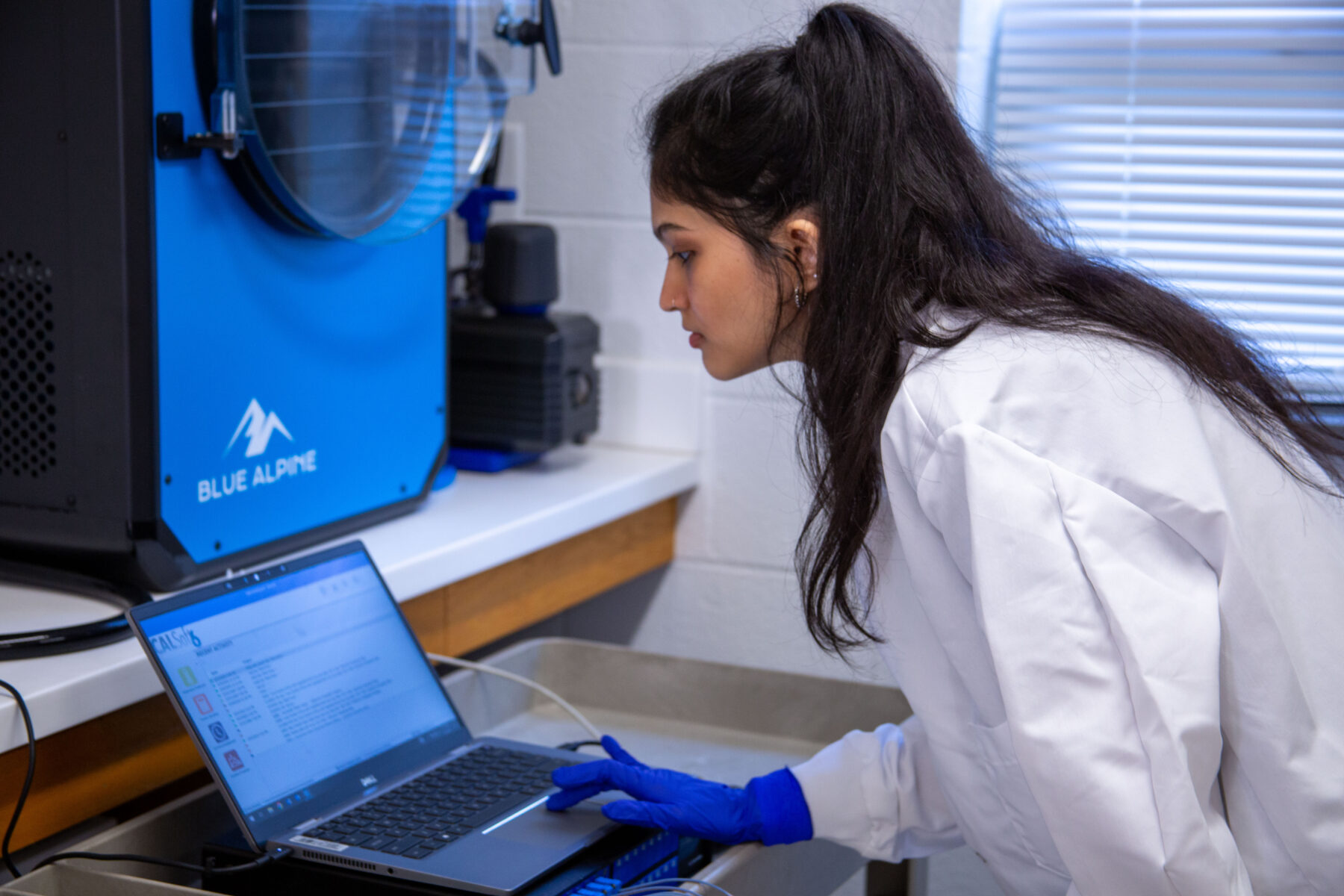Explore the cutting edge of agriculture


What our Ag and Natural Resources interns do
Assist county
Extension agents
Support on-farm and field research
Engage with local producers
Plan and deliver educational programs
Create educational materials like articles, flyers, etc.
Develop professional and technical skills
Meet a recent ANR intern

“This job has given me the opportunity to connect with a lot of people. I’ve stepped into pecan orchards and participated directly in cotton variety trials and with calibrating grower’s boom sprayers.”
– Joshua Emmanuel, Agricultural and Applied Economics M.S. student
Why apply?
- Learn by doing. Put your classroom skills to work on real-world projects.
- Grow your network. Work alongside experienced county agents and community leaders.
- Explore a career in Extension. Discover if life as an agent is the right path for you.
- Make a difference. Contribute to research and programs that meet local needs.







Internship FAQ
What does the application process involve?
Students apply online through our application form and provide basic information such as contact details, academic background, and preferred program and location in Georgia. After applications close in January, district leaders review submissions and consider how qualified candidates would connect with county offices. Selected students will be contacted for interviews, and those who are a good match will be offered a position. After receiving the offer, the student must submit a formal application through UGA Jobs for it to be processed by UGA HR.
Is the internship full-time?
Yes, it is full-time for 12 weeks.
How much does the internship pay?
UGA Extension summer interns make $14.00/hour.
What are the important dates and deadlines?
Applications for summer 2026 are due by January 2, 2026. You’ll hear back from the hiring team by March if you are selected. Internships begin on May 11, 2026.
What types of projects will I work on?
Each intern carries out a capstone project on a community issue. This might be a laboratory or field research study or a program evaluation. Interns usually present their findings or deliverables to Extension supervisors at the end of the term and participate in a poster presentation. Examples of past research projects include:
- Leading a “Science Chef” workshop, teaching schoolchildren cooking and nutrition concepts.
- Helping maintain an aquaponics greenhouse system (monitoring fish and plant growth under a controlled environment) as part of a local sustainability initiative
- Partnering with the Y.O.U.R.E. Fellowship Program Research Project to test 4-H recipes.
Can I choose which county I’m assigned to?
Students will be matched with an agent in the county or region they prefer, if possible.